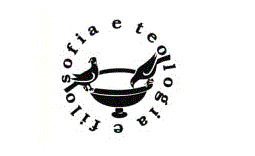


Nella filosofia dell’ultimo Pareyson, denominata ontologia della libertà, è sovente presente la struttura del paradosso, espressa tramite figure come l’ossimoro. In alcuni dei suoi scritti, sia editi che inediti, Pareyson ricorre anche ad un motto latino anonimo (“Nemo contra Deum nisi Deus ipse”), in cui si sostiene che solo Dio può contrapporsi a se stesso. Ciò equivale a dire che (contro il manicheismo) non può darsi nessun altro, oltre a Dio stesso, che possa negarlo. Tale antinomia viene problematizzata dall’autore, cercando di verificare se essa sia riducibile ad una semplice “opposizione reale” (priva di contraddizione), oppure se essa sia realmente una contraddizione, considerata come interna a Dio e come la sua autentica verità.
Parole chiave: Pareyson, ontologia della libertà, “Nemo contra Deum nisi Deus ipse”
In the philosophy of the last Pareyson, called the ontology of freedom, the structure of the paradox is often present, expressed through figures such as the oxymoron. In some of his writings, both published and unpublished, Pareyson also uses an anonymous Latin motto (“Nemo contra Deum nisi Deus ipse”), in which it is argued that only God can oppose himself to himself. This is equivalent to saying that (against Manichaeism) there can be no one else, besides God himself, who can deny it. This antinomy is problematized by the author, trying to verify whether it can be reduced to a simple "real opposition" (without contradiction), or whether it is really a contradiction, considered as internal to God and as his authentic truth.
Keywords: Pareyson, ontology of freedom, “Nemo contra Deum nisi Deus ipse”